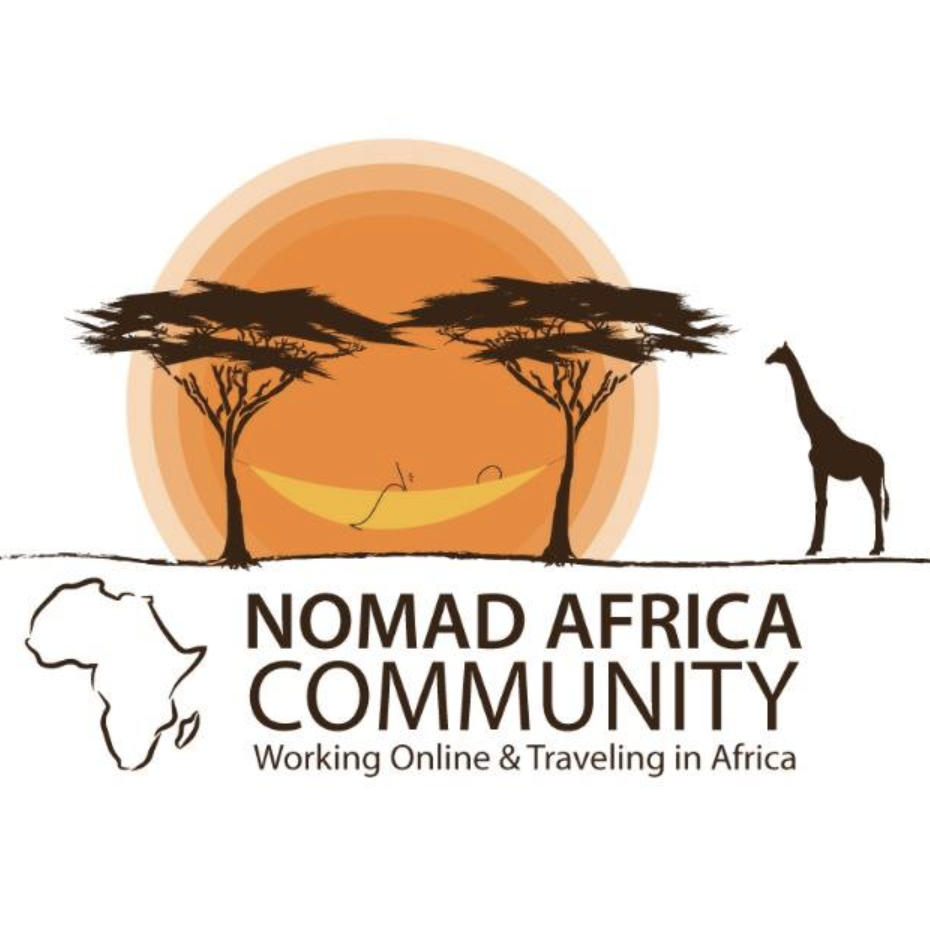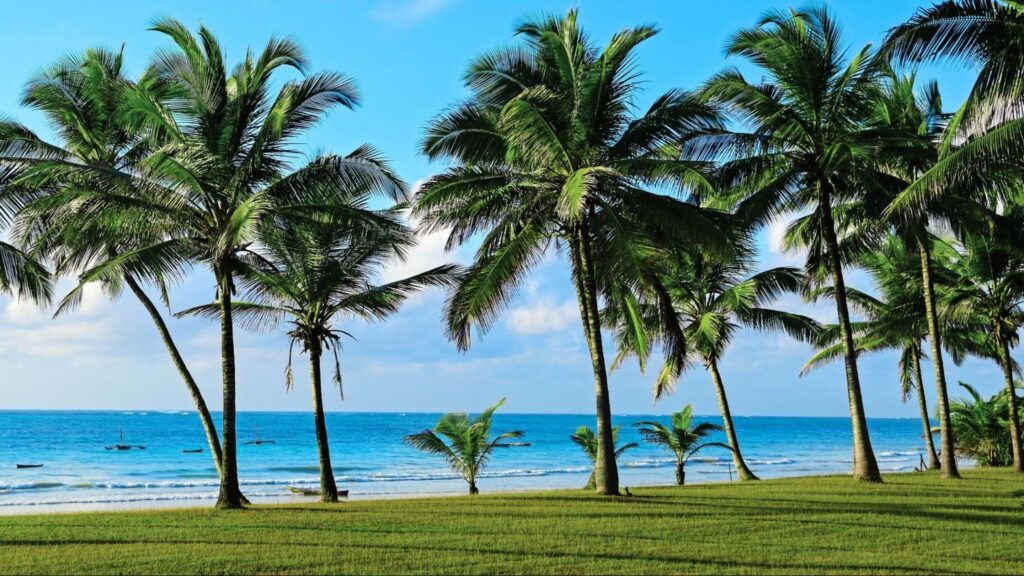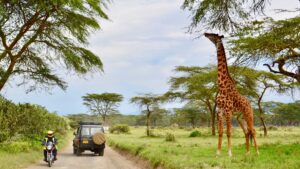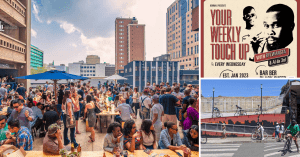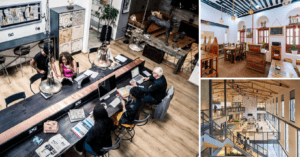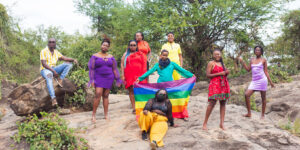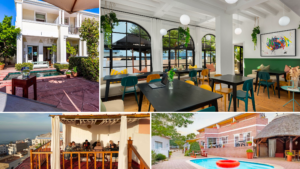If you’re a digital nomad looking to experience a unique and off-the-beaten-path destination, Burundi might be the perfect place. While not as well-known as other countries for digital nomads, Burundi offers a wealth of opportunities and experiences for those seeking a different kind of adventure.
While Burundi may not be the most conventional destination for digital nomads, it offers a unique blend of natural beauty and cultural experiences. With careful planning and an open mind, digital nomads can embrace the challenges and rewards of living and working in this East African gem.
This guide will provide you with everything you need to know about living the digital nomad lifestyle in Burundi.
Jump To:
Things to Do in Burundi | Destinations | Internet | Coworking Spaces | Coliving Spaces | Best Times to Visit | Visas | Cost of Living | How to Get There | Safety and Security | Frequently Asked Questions
| Main Languages | Kirundi, French, English (official languages) |
| Capital city | Bujumbura |
| Main airport | Melchior Ndadaye International Airport (Bujumbura) |
| Currency | Burundian Franc (BIF) |
| Time Zone | Central Africa Time (CAT) |
| Plug Socket Type | Type C and Type E |
| Best time(s) to Visit | June to August and December to February |
| Internet Quality | Limited access in some areas |
| Highlights | Lake Tanganyika; National Parks; Rich Culture |
Things to Do in Burundi
Burundi may not be the most popular destination for digital nomads, but it offers a unique experience that is worth considering. Here are some attractions and things to do in Burundi:
National Parks
Burundi is home to several national parks, including Kibira National Park, Ruvubu National Park, and Rusizi National Park. These parks offer a chance to see wildlife such as hippos, crocodiles, and chimpanzees. Kibira National Park is also a great place for bird watching, with over 200 species of birds.
Lakes
Burundi is home to several lakes, including Lake Tanganyika, which is one of the deepest lakes in the world. Lake Tanganyika is a great place to relax and enjoy the scenery. You can also go swimming, fishing, or take a boat ride.
Waterfalls
Chutes de la Karera is a series of four stunning cascades near Rutana. It is among the tentative list of UNESCO World Heritage Sites. It is a great place to go hiking and enjoy the beautiful scenery.
Museums
Burundi has several museums, including the Geological Museum of Burundi and the National Museum of Gitega. These museums offer a glimpse into the country’s history and culture.
Drumming Performances
Burundi is known for its traditional drumming performances. You can watch a performance and learn more about the history and significance of the drums.
Hot Springs
Burundi has several hot springs, including the Source du Nil Hot Springs. These hot springs are a great place to relax and enjoy the natural beauty of the area.
Overall, Burundi offers a unique experience for digital nomads looking for something different. From national parks to hot springs, there is something for everyone to enjoy.
Best Destinations for Digital Nomads
Burundi is a small country located in East Africa, known for its stunning landscapes and warm hospitality. As a digital nomad, you may be wondering where the best places to live and work in Burundi are. In this section, we will explore some of the best destinations for digital nomads in Burundi.
Bujumbura
Bujumbura is the capital city of Burundi and the largest city in the country. It is located on the shores of Lake Tanganyika, one of the largest freshwater lakes in the world. The city is home to a growing number of coworking spaces and cafes that are perfect for digital nomads. The internet connection in Bujumbura is relatively good, and the cost of living is affordable.
Kirundi
Kirundi is the official language of Burundi, and learning it can be a great way to immerse yourself in the local culture. As a digital nomad, you can take advantage of language classes offered in Kirundi to improve your language skills while working remotely.
Other Destinations
While Bujumbura and Kirundi are the most popular destinations for digital nomads in Burundi, there are other great places to explore. For example, the city of Gitega is located in the heart of the country and is known for its rich history and cultural heritage. The city of Ngozi, located in the north of the country, is also a great place to visit for its stunning landscapes and friendly people.
Internet Connectivity
Burundi has seen a significant increase in the number of internet users, with a 39% increase between 2020 and 2021. As of January 2021, internet penetration in Burundi stood at 13.3% DataReportal. While this is lower than many other countries, it is still possible to find reliable internet connectivity in major urban areas.
In Burundi, there are several internet service providers (ISPs) that offer different types of connections, including ADSL, fiber, and wireless. The most popular ISPs include Econet Leo, Onatel, and U-Com. Econet Leo is known for its reliable 4G network coverage, which is available in most urban areas.
In terms of cost, internet connectivity in Burundi is relatively affordable compared to other African countries. However, the cost of internet access can vary depending on the type of connection and the ISP. For example, a 1 Mbps ADSL connection from Econet Leo costs around BIF 40,000 ($20) per month, while a 10 Mbps fiber connection from Onatel costs around BIF 200,000 ($100) per month.
When it comes to finding places to work, most cafes and restaurants in major cities offer free Wi-Fi to customers. However, it is important to note that internet speeds can vary depending on the location and time of day. For digital nomads who require a more stable connection, co-working spaces such as the Regus Business Centre in Bujumbura may be a better option.
Coworking Spaces
Burundi is a country that is rapidly developing its technological infrastructure, making it an ideal destination for digital nomads. Coworking spaces are becoming increasingly popular in the country, and there are several options for those who need a workspace. Here are some of the best coworking spaces in Burundi:
-
Regus Bujumbura – Regus is a well-known coworking space provider with locations all around the world. Their Bujumbura location offers a range of services, including private offices, meeting rooms, and coworking spaces. They also offer high-speed internet and printing services.
-
Hub Africa – Hub Africa is a coworking space that is specifically designed for entrepreneurs and startups. They offer a range of services, including a business incubator, mentorship programs, and networking events. They also have a range of private offices and coworking spaces available.
-
The Office Burundi – The Office Burundi is a coworking space that offers a range of services, including private offices, meeting rooms, and coworking spaces. They also offer high-speed internet and printing services. They have a range of membership options available, including daily, weekly, and monthly.
-
Burundi Business Incubator – Burundi Business Incubator is a coworking space that is specifically designed for startups and entrepreneurs. They offer a range of services, including mentorship programs, networking events, and access to funding. They also have a range of private offices and coworking spaces available.
Overall, coworking spaces in Burundi offer a range of services and amenities that make them ideal for digital nomads. Whether you need a private office or a coworking space, there are several options available in the country.
Coliving Spaces
Coliving spaces are a great option for digital nomads who want to live and work in a community of like-minded individuals. These spaces provide a comfortable and convenient living arrangement that includes shared living spaces, kitchens, and often coworking spaces.
There are a few coliving spaces available in Burundi that cater to digital nomads. Some of the popular ones include:
-
The Bujumbura House: This coliving space is located in the heart of Bujumbura and provides a comfortable living space with all the necessary amenities. It includes a shared kitchen, living room, and coworking space. The rooms are spacious and come with a comfortable bed, desk, and chair. The Bujumbura House is a great option for digital nomads who want to live in the city center and be close to all the amenities.
-
The Burundi Co-living Space: This coliving space is located in a quiet and peaceful area of Bujumbura and provides a comfortable living space for digital nomads. It includes a shared kitchen, living room, and coworking space. The rooms are spacious and come with a comfortable bed, desk, and chair. The Burundi Co-living Space is a great option for digital nomads who want to live in a quiet and peaceful environment.
-
The Lake Tanganyika Coliving Space: This coliving space is located on the shores of Lake Tanganyika and provides a unique living experience for digital nomads. It includes a shared kitchen, living room, and coworking space. The rooms are spacious and come with a comfortable bed, desk, and chair. The Lake Tanganyika Coliving Space is a great option for digital nomads who want to live in a natural and peaceful environment.
Overall, coliving spaces are a great option for digital nomads who want to live and work in a community of like-minded individuals. They provide a comfortable and convenient living arrangement that includes shared living spaces, kitchens, and often coworking spaces. In Burundi, there are a few coliving spaces available that cater to digital nomads and provide a unique living experience.
Best Times to Visit
Burundi is a beautiful country with a tropical climate that makes it an ideal destination for digital nomads. The best times to visit Burundi are between June and August and December to February. During these months, the weather is pleasant, and there are fewer chances of rain.
The average temperature in Burundi is around 23°C in January, making it an excellent time to explore the country’s natural beauty. The weather is also perfect for outdoor activities such as hiking, cycling, and swimming.
If you’re planning to visit Burundi during these months, make sure to book your accommodation in advance as it can get quite busy. You can also expect higher prices during peak season, so it’s a good idea to budget accordingly.
Worst Times to Visit
The worst time to visit Burundi is during the rainy season, which lasts from March to May and September to November. During this time, the country experiences heavy rainfall, which can make it difficult to travel and explore.
The rainy season can also bring about the risk of flooding and landslides, making it unsafe to venture out. Additionally, the humidity levels are high during this period, making it uncomfortable for tourists.
In conclusion, the best time to visit Burundi is during the dry season, which is from June to August and December to February. However, if you do decide to visit during the rainy season, make sure to take necessary precautions and plan your trip accordingly.
Tourist and Digital Nomad Visas
Traveling to Burundi requires a passport that is valid for at least six months from the date of entry. Tourists from most countries can obtain a visa on arrival at the airport, but it is recommended to check the visa requirements beforehand.
For digital nomads, Burundi does not have a specific digital nomad visa, but a tourist visa allows for a stay of up to 90 days. However, it is important to note that the visa does not allow for work or business activities. If you plan to work remotely while in Burundi, it is recommended to obtain a work permit or seek legal advice.
It is also essential to have valid health insurance when traveling to Burundi. Medical facilities in the country are limited, and the cost of treatment can be high. Therefore, it is recommended to have comprehensive health insurance that covers emergency medical expenses, including medical evacuation.
To apply for a Burundi visa, you can visit the Burundi embassy or consulate in your country of residence or apply online through the e-visa system. The e-visa application process is simple and straightforward, and the visa is usually issued within three working days.
For those traveling to Burundi from Kigali, Rwanda, there is no need to obtain a Burundi visa beforehand. A transit visa is issued at the border, and it allows for a stay of up to 24 hours.
In summary, tourists can obtain a visa on arrival for a stay of up to 90 days, while digital nomads should seek legal advice or obtain a work permit. It is also important to have comprehensive health insurance and check visa requirements before traveling to Burundi.
Cost of Living
Burundi is one of the most affordable countries in the world, making it an attractive destination for digital nomads looking to save money. According to Numbeo, the cost of living in Burundi is 63% lower than in the United States. A single person can live comfortably on a budget of $400-$500 per month, while a family of four can live on a budget of $1,200-$1,500 per month.
Housing is one of the biggest expenses in Burundi. Rent for a one-bedroom apartment in the city center costs around $150 per month, while a three-bedroom apartment costs around $500 per month. Utilities, including electricity, water, and internet, cost around $50 per month.
Food is also relatively inexpensive in Burundi. A meal at an inexpensive restaurant costs around $3, while a three-course meal for two at a mid-range restaurant costs around $25. Groceries for a week for one person cost around $20.
Transportation costs are also low in Burundi. A one-way ticket on local transport costs around $0.25, while a monthly pass costs around $10. Taxis are also affordable, with a typical fare within the city costing around $2.
When it comes to taxes, Burundi has a progressive income tax system. The tax rate ranges from 0% to 35%, depending on the income level. However, digital nomads who work for foreign clients and do not earn income in Burundi are not subject to Burundian income tax.
Overall, Burundi is a very affordable country for digital nomads, with low living costs and a relatively low tax burden.
How to Get There
If you are planning to become a digital nomad in Burundi, the first step is to plan your trip and book your flights. You can fly into Bujumbura International Airport, which is the main airport in Burundi. There are several airlines that operate flights to Bujumbura, including Ethiopian Airlines, Kenya Airways, and RwandAir.
When booking your flights, it is important to check visa requirements for Burundi. As of June 2023, Burundi offers a digital nomad visa, which allows remote workers to stay in the country for up to one year. To apply for this visa, you will need to gather all the necessary documents, including a valid passport, and any other supporting documents required for a Burundi digital nomad visa.
It is also important to note that travel to Burundi can be challenging due to political instability and security concerns. It is recommended to check with your embassy or consulate before traveling to Burundi and to take necessary precautions while in the country.
Once you arrive at Bujumbura International Airport, you can take a taxi or public transportation to your accommodation. It is recommended to book your accommodation in advance and to choose a location that is safe and convenient for your work and travel needs.
Overall, with proper planning and preparation, becoming a digital nomad in Burundi can be a rewarding and exciting experience.
Culture and Lifestyle
Burundi has a rich culture and history that is reflected in its cuisine, art, music, and festivals. Here are some sub-sections that will provide you with a glimpse of Burundi’s culture and lifestyle.
Culture and History
Burundi has a diverse culture that has been shaped by the country’s history. The country was once a German colony and later a Belgian colony. As a result, Burundi has been influenced by both German and Belgian cultures. The official languages of Burundi are Kirundi and French, reflecting the country’s colonial past.
Cuisine
Burundi’s cuisine is a blend of African and European flavors. The country’s staple food is ugali, which is made from maize flour. It is often served with beans, vegetables, and meat. Other popular dishes include isombe (cassava leaves with beans), matoke (cooked plantain), and brochettes (grilled meat skewers). Burundi also has a variety of fruit, including bananas, papayas, and pineapples.
Art and Music
Burundi has a rich tradition of art and music. Traditional Burundian art includes basket weaving, pottery, and wood carving. Burundi’s music is characterized by its use of drums and other percussion instruments. The country’s traditional dance is known as the “igishakamba.”
Festivals
Burundi has several festivals throughout the year, including the Independence Day celebrations on July 1st. The country also celebrates the Umuganura festival, which is a harvest festival that takes place in August. During the festival, Burundians gather to celebrate the harvest and share food and drink.
Overall, Burundi’s culture and lifestyle are unique and diverse. From its cuisine to its art and music, Burundi has something to offer everyone.
Safety and Security
As a digital nomad in Burundi, it is important to prioritize your safety and security. While the country has made significant progress in recent years, there are still some risks that you should be aware of.
Safety
The Australian Government travel advice for Burundi recommends that travelers reconsider their need to travel and understand the risks and safety before visiting the country. It is important to research your destination before you go and be aware of any potential dangers.
When traveling in Burundi, it is important to take the following safety precautions:
- Avoid walking alone at night, especially in isolated areas
- Keep your valuables out of sight and avoid carrying large amounts of cash
- Be aware of your surroundings and keep an eye out for any suspicious activity
- Use a reputable taxi service and avoid getting into unmarked taxis
- Be cautious when using public transportation, as accidents are common
Travel Insurance
It is highly recommended that you purchase travel insurance before visiting Burundi. In the event of an emergency, travel insurance can provide you with the necessary medical assistance, evacuation, and protection against theft or loss of personal belongings.
When purchasing travel insurance, make sure to read the policy carefully and understand what is covered. Some policies may not cover certain activities, such as adventure sports or high-risk activities.
Overall, by being aware of your surroundings and taking the necessary precautions, you can ensure a safe and enjoyable experience as a digital nomad in Burundi.
Frequently Asked Questions
What are the visa requirements for working remotely in Burundi?
Foreigners who want to work remotely in Burundi must apply for a work visa. The process can be lengthy, so it’s important to start early. You can apply for a work visa at the nearest Burundian embassy or consulate. It’s also important to note that the visa requirements can change, so always check with the embassy for the latest information.
What are the top locations for digital nomads in Burundi?
Bujumbura, the capital city of Burundi, is the most popular location for digital nomads. It’s a vibrant city with plenty of cafes and restaurants, making it easy to find a place to work and socialize. Other popular locations include Gitega and Ngozi.
What is the cost of living for a digital nomad in Burundi?
Burundi is an affordable country, and the cost of living is relatively low. Accommodation, food, and transportation are all reasonably priced. However, it’s important to note that the cost of living can vary depending on your lifestyle and the area you choose to live in.
What is the internet connectivity like in Burundi for digital nomads?
Internet connectivity in Burundi can be unreliable and slow, especially outside of major cities. However, there are several internet service providers in the country, and most cafes and coworking spaces have Wi-Fi.
Are there any coworking spaces in Burundi for digital nomads?
Yes, there are several coworking spaces in Burundi, especially in Bujumbura. These spaces provide a professional work environment and a community of like-minded individuals.
What are some cultural norms and customs to be aware of as a digital nomad in Burundi?
Burundi is a conservative country, and it’s important to dress modestly and respect local customs and traditions. Most people in Burundi speak Kirundi and French, so learning a few basic phrases can be helpful. It’s also important to be aware of the political situation in the country and to avoid any political discussions or demonstrations.
